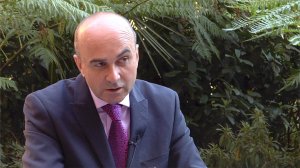A tour of some of the world's most iconic and endangered species, and what we can do to save them. Climate change and habitat destruction are not the only culprits behind so many animals facing extinction.
The impact of consumer demand for cheap meat is equally devastating and it is vital that we confront this problem if we are to stand a chance of reducing its effect on the world around us.
- We are falsely led to believe that squeezing animals into factory farms and cultivating crops in vast, chemical-soaked prairies is a necessary evil, an efficient means of providing for an ever-expanding global population while leaving land free for wildlife
- Our planet's resources are reaching breaking point: awareness is slowly building that the wellbeing of society depends on a thriving natural world
From the author of the internationally acclaimed Farmageddon, Dead Zone takes us on an eye-opening investigative journey across the globe, focussing on a dozen iconic species one-by-one and looking in each case at the role that industrial farming is playing in their plight. This is a passionate wake-up call for us all, laying bare the myths that prop up factory farming before exploring what we can do to save the planet with healthy food.
About the author
Philip Lymbery is the CEO of leading international farm animal welfare organisation Compassion in World Farming and a prominent commentator on the effects of industrial farming. He is listed by The Grocer as one of the food industry's most influential people. Under his leadership, Compassion's prestigious awards have included Observer Ethical Award for campaigner of the year and BBC Radio 4 Food and Farming awards for best campaigner and educator. He is a lifelong wildlife enthusiast and lives in rural Hampshire with his wife and stepson. Philip is an avid blogger through www.acompassionateworld.org. He has a following of over 75 000 on Twitter. Follow @philip_ciwf
Dead Zone – Where the Wild Things Were is distributed in South Africa by Jonathan Ball Publishers.
EMAIL THIS ARTICLE SAVE THIS ARTICLE ARTICLE ENQUIRY
To subscribe email subscriptions@creamermedia.co.za or click here
To advertise email advertising@creamermedia.co.za or click here










